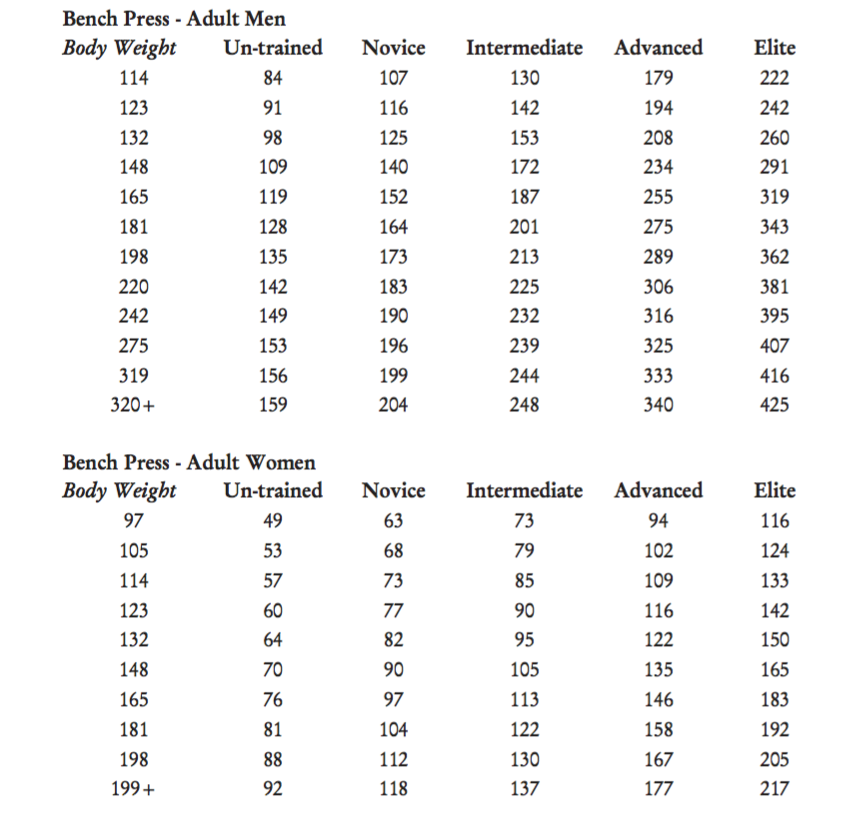We’ve all heard that question. And we’ve all rolled our eyes when it’s asked. Regardless (and for better or worse), the bench press has become the gold standard in comparing levels of physical fitness.
Go to the gym. Enlist the help of a spotter. Add a comfortable amount of resistance to the bench press. Perform one repetition. With a rest in between, keep adding additional resistance until you reach your limit. When you can’t lift anymore, that’s your one rep max. And when someone asks you how much you can lift, you’ll have your answer.
But how much should you be able to lift?
 According to data, an untrained 165-pound man can bench press 119 pounds. See chart (at right) for additional data points.
According to data, an untrained 165-pound man can bench press 119 pounds. See chart (at right) for additional data points.
You’ll quickly discover that most untrained or novice exercisers aren’t able to bench press their own bodyweight. Though it’s not necessarily the best measure of physical strength, the ability to press one’s own bodyweight is a common goal for exercisers. Though it doesn’t have a direct implication, it’s a bragging right to which many men and women aspire.
So how much weight should you be able to bench press? There’s no short answer. It depends on your weight, fitness level, goals and a variety of other factors. Though the chart will provide some very guidelines, know that each person is different. And that all of us are at different points on our fitness journey.
The bottom line: If you’re not satisfied with your current level of strength, set a goal and work towards it.










